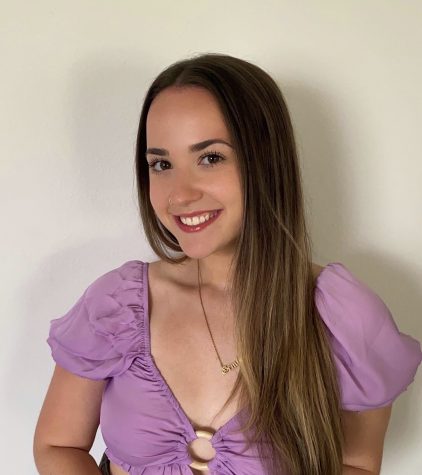Local experts share insights during panel on sexual violence
Photo used by Utica University to promote sexual assault awareness events.
April 28, 2022
The Safe Trax program at Utica University hosted a panel on sexual violence on April 22 in acknowledgment of Sexual Assault Awareness Month. The program’s mission is to enhance prevention education and services to victims of sexual assault, domestic violence, dating violence and stalking (SADVS).
The panel featured seven local experts in the field and they shared their knowledge on sexual violence. The experts answered questions from the audience so those in attendance were informed on the topic.
Safe Trax Director Jennifer Jones and Trax Prevention Educator Ann Locke said the panel’s importance was to raise awareness and offer words of encouragement.
Michelle Forbes, a local therapist for YWCA of the Mohawk Valley, spoke on how her experience working with sexual assault victims made her realize that the population is misrepresented.
According to Campus Safety Director Musco Millner, helping victims of sexual violence find peace is a priority.
“After 26 years in the New York State police, I’ve had experience helping victims reach closure, and trying to help them close a chapter in their life is rewarding,” Millner said.
Jones explained how to help a victim and validate their experience to make them feel heard.
“What happened to you is not your fault and making sure they are heard and seen, since they are the drivers here,” Jones said. “We want them to have the resources they feel they need to move forward.”
Counselor Amanda Learnard said each type of violence should be dealt with as its own unique case and case workers should be aware of the risk of re-traumatizing by finding the happy medium when talking about trauma with the victim.
“It is all about being trauma-informed and we can’t define what that is for everyone,” Learnard said.
The professionals who work in the field see that men can be victims too and there is a gender stereotype of sexual violence and most cases are underreported due to common fears about coming forward.
Lisa Green, vice president of Human Resources and Title IX coordinator at Utica University, said it is important when a victim comes forward to seek help.
“By the time a victim gets to me they have made the biggest step in their life, that they are choosing to be an advocate for themselves,” Green said.
For more information, contact Safe Trax Director Jennifer Jones at [email protected].





































































































































